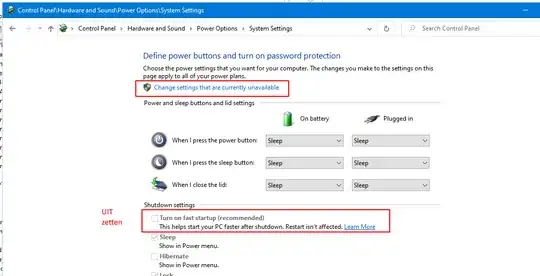I know there are quite a few threads open for this issue but after hours of research and trial and error I haven't found a solution yet. Plus I'm not that much into the internals of Windows and can't really figure out what all those captured data means.
The issue is simple: I often hear a loud cracking sound when I move over menu entries in game which cause short sound effects like a single "click" sound. This happens more or less frequent and becomes annoying quickly. Moreover I realized that those short sounds often don't play as intended. If you move over quickly you hear a click sound for each menu entry, sometimes you hear nothing at all for 1-2 seconds and then you hear it fade in and work as intended.
Same goes for VLC player - when I move around the timeline quickly you often hear the cracking when the video starts playing again after "jumping".
I tested with LatencyMon and got a highest DPC latency of 2557 us with a message that my system couldn't handle realtime audio.
So things I already tried:
- Updated BIOS to latest version
- Tried disabling HPET (though in Windows 10 this seems to be a resolved issue since HPET only runs for specific applications)
- Updated all drivers
- Various other things in the BIOS which did not help
And now for the data. I got the following:
As far as I understand the most troublesome drivers seem to be the Realtek HD Audio driver and the DirectX Kernel.
Little side-note: I had a SoundBlaster ZX a time ago which I sent back. The card had - though it should move audio processing to the sound card instead doing it on the CPU - the same issues with cracking sounds.
Moreover the Windows installation is quite fresh (beginning of June) so there shouldn't be much issues from cluttering.
EDIT: My PC specs are the following (it should handle that well enough)
- i5 6600K 4C @ 4.7 Ghz
- AMD Radeon R9 290
- 16GB DDR4-3000 RAM
- System drive SSD 256GB
- AsRock Z170 Extreme 4+ MoBo
